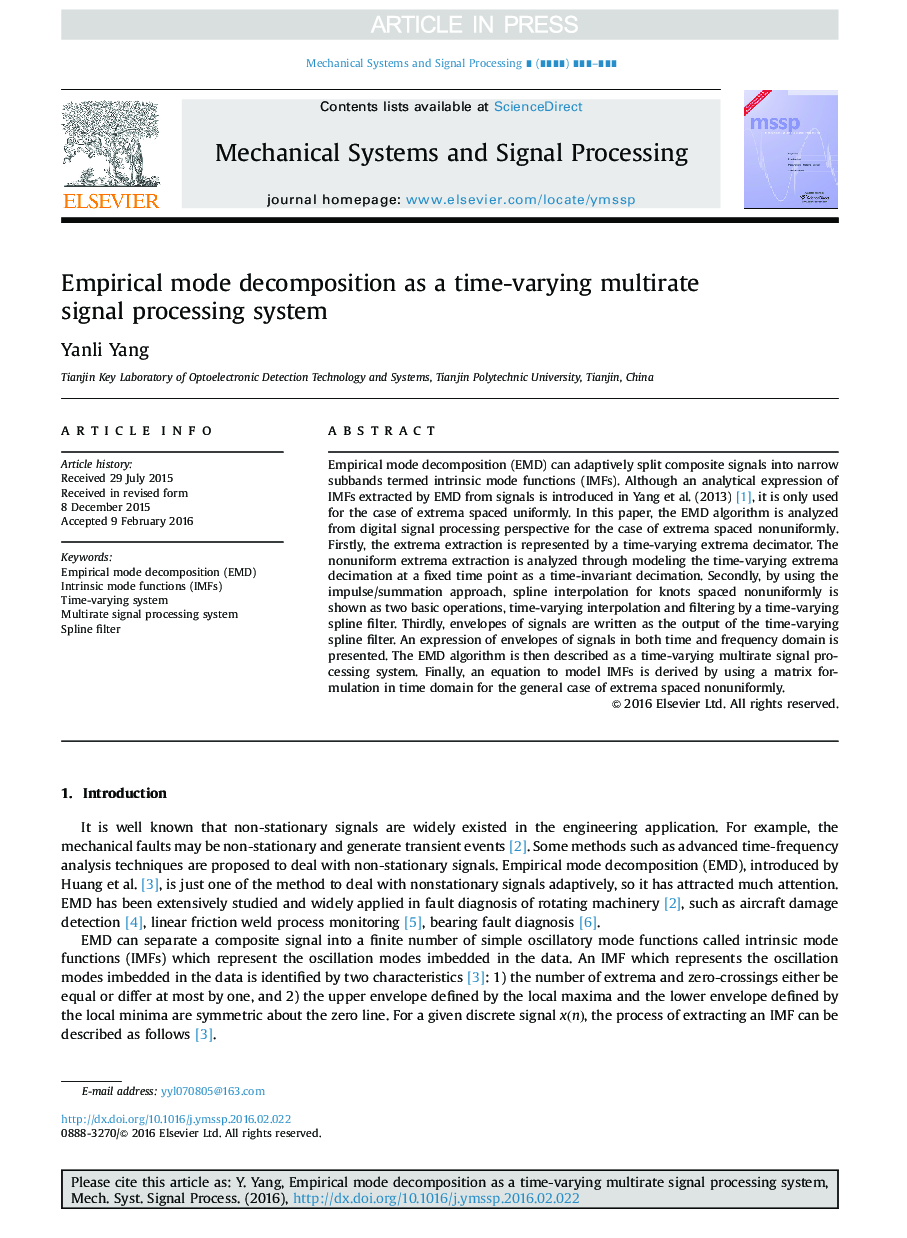| Article ID | Journal | Published Year | Pages | File Type |
|---|---|---|---|---|
| 6955249 | Mechanical Systems and Signal Processing | 2016 | 12 Pages |
Abstract
Empirical mode decomposition (EMD) can adaptively split composite signals into narrow subbands termed intrinsic mode functions (IMFs). Although an analytical expression of IMFs extracted by EMD from signals is introduced in Yang et al. (2013) [1], it is only used for the case of extrema spaced uniformly. In this paper, the EMD algorithm is analyzed from digital signal processing perspective for the case of extrema spaced nonuniformly. Firstly, the extrema extraction is represented by a time-varying extrema decimator. The nonuniform extrema extraction is analyzed through modeling the time-varying extrema decimation at a fixed time point as a time-invariant decimation. Secondly, by using the impulse/summation approach, spline interpolation for knots spaced nonuniformly is shown as two basic operations, time-varying interpolation and filtering by a time-varying spline filter. Thirdly, envelopes of signals are written as the output of the time-varying spline filter. An expression of envelopes of signals in both time and frequency domain is presented. The EMD algorithm is then described as a time-varying multirate signal processing system. Finally, an equation to model IMFs is derived by using a matrix formulation in time domain for the general case of extrema spaced nonuniformly.
Keywords
Related Topics
Physical Sciences and Engineering
Computer Science
Signal Processing
Authors
Yanli Yang,
